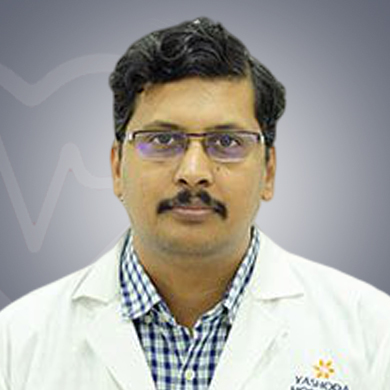
5 Years of experience
Speaks: English
The conditions that Dr. Umasankar Tantravahi treats are listed below:
Some women require surgery to remove the entire breast through mastectomy. The surgeons remove the breast tissues including nipple and the skin and the tissues that have the chest muscles. You may opt for breast reconstruction after a mastectomy.
Your symptoms depend on the type of cancer you are affected with, what is the stage, the location of cancer, and how far it has spread in the body. Cancer may cause any type of symptoms or signs. A sign can be seen by others, such as a fever, vomiting, and breathing. Symptoms can be perceived only by the person is suffering from the condition. Around 200 types of cancer are known till date and all these can cause different symptoms. Some of the signs and symptoms of different types of cancer are as follows:
Dr Umasankar Tantravahi works from 11 am to 6 pm on all days of the week, except Sunday.
The list of popular procedures that Dr Umasankar Tantravahi performs for cancer treatment are given below
The surgeon assesses the condition of the patient before performing any procedure to understand the risk associated with the procedure. The neurologist is popular for their high success rate and patient-centric approach which helps fast recovery of the patient. With vast experience in performing even the most complex cases with high precision and accuracy, the doctor follows medical protocols. A surgical oncologist performs cancer surgery in two ways: minimally invasive surgery and open surgery. Minimally invasive surgery uses techniques that focus on minimizing the trauma of traditional surgery. Some of the minimally invasive techniques are cryosurgery, robotic surgery, laparoscopy, cryosurgery, and laser surgery. In open surgery, surgeons make a single large cut to remove the tumor and some healthy tissues.

Share Your Experience about Dr. Umasankar Tantravahi

A surgical oncologist is a general surgeon with training in various procedures for diagnosing or removing cancerous growths. The common procedures performed by a surgical oncologist are biopsy and surgery for the removal of cancerous growth. A surgical oncologist performs surgeries to know which parts of the body cancer has spread. In order to diagnose cancer, a surgical oncologist might perform biopsies. After a biopsy, a surgical oncologist sends the samples to a pathologist. If cancer is detected, you may need to consult the surgical oncologist again to have the tumor removed. The surgical oncologist performs a staging surgery to determine a tumor’s size.
Surgical oncologists may suggest the below-listed tests for the diagnosis of cancer:
A biopsy is the most common procedure to diagnose most types of cancer. While other tests can only suggest if cancer is present, a biopsy can make an accurate diagnosis. During this process, the doctor removes a very small amount of tissues to observe under a microscope.
If your primary doctor suspects cancer, he will refer you to a surgical oncologist for the diagnosis of the condition. The surgical oncologist evaluates the symptoms and analyses the test report to find out if you have cancer. An individual needs to consult a surgical oncologist in case of below situations: